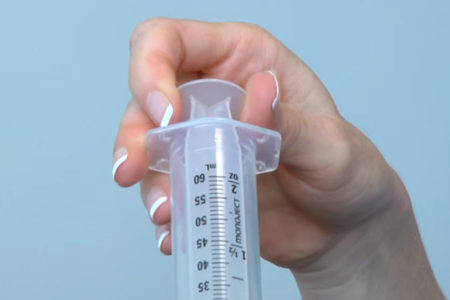Beautiful Bowels
The underrated, down-under operation of human anatomy is one of the most important functions of the body … the bowels.
Regular, frequent bowel movements are fairly standard for an uninjured human body, however a spinal cord injury can change the game entirely. Depending upon a person’s level of injury, this bodily function can become the bane of existence.
In part two of my bladder & bowel article (you can find part one here), I describe my guts, feelings and lifestyle around my neurogenic bowels.
Neurogenic Bowel
As I explained in part one of this article about the bladder, neurogenic bowel is similarly described as a lack of nervous control which prevents the bowel from functioning correctly resulting in fecal incontinence, chronic constipation or both. Neurogenic bowel can be caused by a spinal cord injury, spina bifida, multiple sclerosis, diabetes mellitus and a variety of other ailments.
When I was newly injured and laying in the hospital bed, I would cringe when the nurses would say, “It’s time for your BP!” which meant – Bowel Program, AKA “time for number two.” This was no small task. For a bodily function that usually took only five to ten minutes of private relief before injury, it now took two or more hours of excruciating, pride-crushing work that involved two or more parties.
Explicit Warning:
I apologize in advance for disclosing the following TMI, but if not me, then who?
Here We Go!
Each day – or every other day, if all goes well – I insert a highly potent suppository called The Magic Bullet™ (the most powerful suppository available – I call it a “red-hot chili pepper”) into my anus. Ten to thirty minutes later, I begin to experience early Autonomic Dysreflexia symptoms such as chills, headache and profuse sweating. There is no turning back when the “bullet” is loaded … a toilet MUST be near by.
Dulcolax® and the other bisacodyl suppositories have the same active ingredient (10mg bisacodyl) as The Magic Bullet. The base, or carrier, of the active ingredient in the suppository is what makes the “Bullet” different. The Magic Bullet uses a polyethylene glycol (PEG) base which is water-soluble. This base allows the bisacodyl to be activated by the body’s own moisture shortly after insertion. The Dulcolax and other bisacodyl suppositories use a vegetable oil base. This type of base takes longer to work because it needs time to be melted by the body’s heat.
This regular, self-masochistic routine may seem slightly brutal, but for me it is my opportunity for independence with self-care. Initially, I relied upon a caregiver or nurse to digitally stimulate a bowel movement by inserting their cold, rubber gloved fingers into my you-know-what, wiggling, turning, stretching and pulling until the job was done … I prefer the “chili pepper.”
For consistent control purposes I do not influence my bowels with any other additives or laxatives. My main source of bowel health is a balanced diet including raw fruits and vegetables, juices and probiotic yogurt. I am prone to excessive gas build-up because of a slower moving system, therefore foods that may breakdown slowly and/or ferment over time like red meat, fish and heavy greens such as kale are consumed just prior to a bowel movement for immediate evacuation.
Control is King!
When most things in life are beyond control … control the bowels first!
Experiencing a bladder accident in public is one thing, but dealing with bowel incontinence is on a whole other level.
Personal Experience:
In the early days of my recovery, before I had an understanding and consistent routine for my bowel program, I was at the mercy of an unpredictable rear end. This meant I was severely insecure and extremely nervous to go anywhere in public in fear of having a bowel accident. My fear would be realized one night when a group of well-intended friends took me out to a Los Angeles dance club.
From the moment my buddies scooped me up out of my wheelchair and loaded me into the car, my mind was focused on my guts. I had not yet had a thorough bowel movement that day and I knew my body was trying to tell me so. The confusing, mixed signals my mind and body were sending were not clear enough for me to understand yet. I surely did not want to let my friends down and cancel this potential good time, so we carried on. Sure enough, just as the music went up and the lights went down, the boys began to get loose – and so did my bowels. I sat there in my big, archaic hospital wheelchair, in the middle of a flashy disco dance floor, sulking, soiled in my own humility and waste. With the music too loud to communicate and my hands too weak to gesture, all I could do was wait until the warm stench caught the nose of the right friend for help. Unfortunately, the smell alerted almost everybody in the club. Man, what can I say? “(**)It Happens.”
From that moment forward I was determined to find the right solution for my peace of mind. I have trialed most every type of suppository on the market, landing on The Magic Bullet for my needs. Based on my activity level and diet, a routine that takes place every other day, early in the morning, works best for me. I make my BP (Bowl Program) the priority of my day and it gives me confidence moving forward.
Since this human experience is rarely, if ever, spoken (or in this case, written) about I am happy to share mine. And by doing so, I hope to expose myself as a mirror for others to face. I honor the process of self-evolution, even when the dance floor beat drops the brown note.
Rise Above-
Aaron
More resources to manage your body:
- Managing My Neurogenic Bladder
- How to Safely Catheterize in a Public Restroom | Ask Aaron
- Spasticity & Spasms: Part 1 – Insight Into My Spastic Paralysis
- Spasticity & Spasms: Part 2 – How I Manage My Possessed Body
- Spinal Cord Injuries and Urological Issues
- Autonomic Dysreflexia: A Dangerous Secondary Complication of Spinal Cord Injury
- Temperature Roller Coaster: The Ups and Downs of Thermoregulation
- Nerve Pain | Spinal Cord Injury
Shield HealthCare | Stronger with Shield









 I have progressive MS and I find it hard sometimes to have a positive attitude. How do you reach out to others?
I have progressive MS and I find it hard sometimes to have a positive attitude. How do you reach out to others?











Hi Aaron:
Bravo for talking about the unmentionable. I am nearly 50 years in a chair, T-5 para. Magic Bullet has saved my life. Men, women, young old, with SCI — bowel and bladder issues are the universal pain — the common denominator.
Years ago the Magic Bullet had some production problems so they weren’t available ANYWHERE. I had to resort back to the old standby. Just not the same. Keep up your wf
writing. I enjoy it. Peace.
Thank you, Barbara! Bravo for 50 years in a chair, maintaining health does not come easy – it will be 18 years this month since my injury, and I continue to learn more about my body as each day goes. I plan to continue talking about the “unmentionables” to help break the taboo of spinal cord injuries do’s & don’t’s. -Aaron
Hey Aaron, would love to pick your brain some more on this subject. If you have time to email please do and if not I understand! Either way, great article!
Hi Danny! Feel free to reach out to me here: http://www.shieldhealthcare.com/community/spinal-cord-injury/2016/01/23/ask-aaron-question/. I look forward to connecting with you soon. -Aaron
Where can I get Magic Bullet suppository? Does it need a prescription.
Hello There! Thank you for reaching out with your question. The Magic Bullet was prescribed to me by my primary care physician. I would suggest calling your doctor and discussing to see if it is a good option for you. Good luck! -Aaron
I was reading on a website where there is an 8-step process or someone with a reflex neurogenic bowel. Do you follow all of these steps? In other words do you do any type of digital stimulation or manual removal of feces? Or do you just simply insert the Magic Bullet and let it work by itself?
Hi there,
Thank you for writing in with your inquiry. To answer your question, during the first few years of my injury, my nurse, or personal care attendant would administer digital stimulation during a bowel program to help with full elimination. The 8 steps you refer to are a general routine guideline, which may vary from person to person. My routine now consists of only 4 steps… 1) insert Magic Bullet. 2) wait for activation 10-20 minutes. 3) eliminate on toilet 30-60 minutes. 4) shower. The key to a successful bowel program is to discover what works best for your body. It takes time, experimentation, and patience. Best of luck!
Aaron
Hi, thank you for writing about this. Although I haven’t had a spinal cord injury I had to undergo neurosurgery as I had an arachnoid cyst compressing my brainstem. It stretched and damaged the nerves around the brainstem which causes messages from body to brain not to function properly. Since surgery I’ve had chronic constipation, my stomach is constantly bloated and uncomfortable, I’ve experienced on two occasions having a bowel movement without knowing, thankfully I was at home on both occasions. Your article was enlightening, for the last four years since surgery I’ve not spoken to my doctor or neurologist about this out of embarrassment, but after reading your article I’ve realised that if I want a better quality of life regarding this area then I need to speak up and ask for help. Many thanks for writing about your own experience in order that it may help others, it has helped me.
Is it possible that the Magic Bullet might over stimulate a neurogenic bowel for a spinal cord injury that is T12 or lower?
I have tears in my eyes just knowing you are someone who understands this problem. I do not have an SCI, but I have multiple sclerosis, with similar bowel problems. Doctors could help only slightly, and none of them knew about the Magic Bullet! I discovered it myself when I went to a disabled veterans website. I just couldn’t understand why my doctors didn’t know about it. I don’t use a prescription, I order it online. I have a new diet with much more fiber, and that is actually causing problems. But your article has helped me already. Thank you for speaking up.